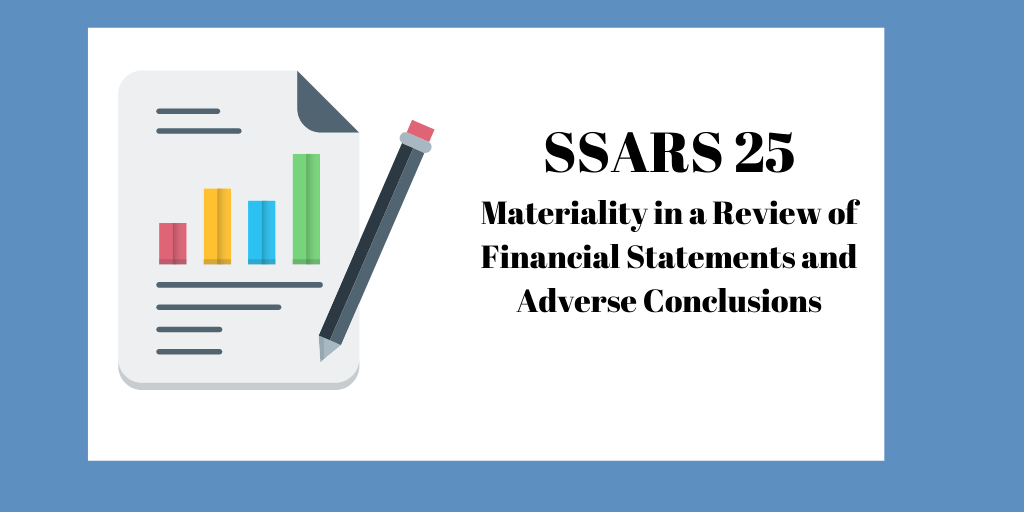The AICPA has issued SSARS 25. It is titled Materiality in a Review of Financial Statements and Adverse Conclusions. Below I tell you how this standard affects your future review engagements.
Materiality in Review Engagements
Until SSARS 25, there was no requirement for you to document materiality in review engagements. Some firms, like my own, decided to do so any way. Others have not. Now, there's no choice. SSARS 25 explicitly requires that we determine and use materiality.
Makes sense. The accountant's conclusion says we are not aware of any material modifications that should be made. The conclusion paragraph follows:
Accountant's Conclusion
Based on our review, we are not aware of any material modifications that should be made to the accompanying financial statements in order for them to be in accordance with accounting principles generally accepted in the United States of America.
It would be difficult to plan or conclude a review engagement without knowing what materiality is. SSARS 25 requires that we design and perform analytical procedures and inquiries to address all material items in the financial statements. This includes disclosures.
New Inquiry Requirements
SSARS 25 adds new inquiries of management including:
- Material commitments, contractual obligations, or contingencies
- Material nonmonetary transactions
- Significant changes in the business activities or operations
- Significant changes to the terms of contracts that materially affect the financial statements
- Significant journal entries
- Status of any uncorrected misstatements from the previous review engagement
- How management determined that significant estimates are reasonable
- Management's assessment of the entity's ability to continue as a going concern, and whether there are conditions that cast doubt about the entity's ability to continue as a going concern
Related Party Transactions
Additionally, SSARS 25 requires that the accountant remain alert for related party transactions that were not disclosed by management. The accountant should inquire of management about transactions outside the normal course of business. You want to know if related party transactions are being used to make the financial statements look better than they really are.
Next, you will see that the standard now permits adverse conclusions.
Adverse Conclusions in Review Engagements
In the past, adverse conclusions in a review engagement were not allowed. SSARS 25 changes this. If the financial statements are materially and pervasively misstated, you can issue an adverse conclusion.
SSARS 25 provides an illustrative accountant's review report with an adverse conclusion. (See illustration 7 on pages 85 and 86 of SSARS 25.) That example states the financial statements are not in accordance with accounting principles generally accepted in the United States of America.
Here's the adverse review report conclusion:
Adverse Conclusion
Based on my (our) review, due to the significance of the matter described in the Basis for Adverse Conclusion paragraph, the financial statements are not in accordance with accounting principles generally accepted in the United States of America.
One more thing, SSARS 25 requires a statement in the review report regarding independence.
Independence in Review Reports
Independence is still required to perform a review engagement. What is different, however, is the accountant must include a statement in the review report saying he or she is independent. That phrase, to be included in the Accountant's Responsibility section of the report, reads as follows:
We are required to be independent of ABC Company and to meet our other ethical responsibilities, in accordance with the relevant ethical requirements related to our review.
See examples of the independence wording in the illustrative reports in SSARS 25. Those reports start on page 75 of the standard.
So when is SSARS 25 effective?
SSARS 25 Effective Date
The effective date for SSARS 25 is for periods ending on or after December 15, 2021. Early implementation is permitted.

